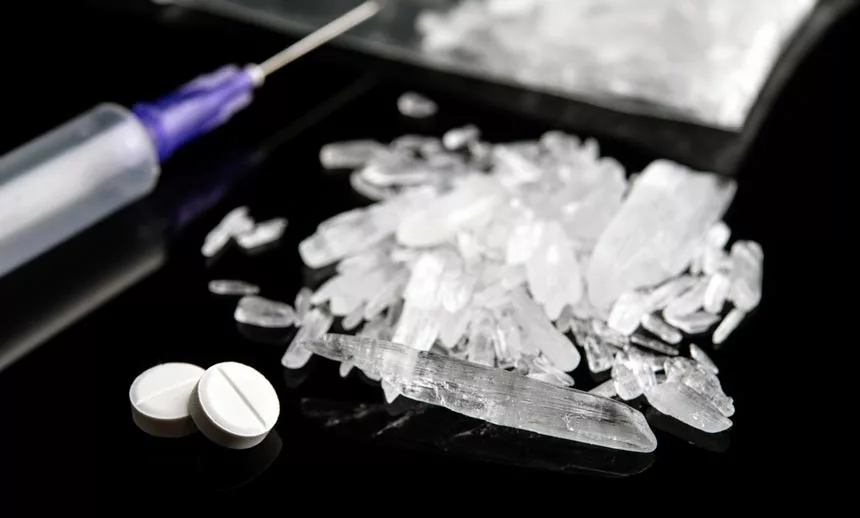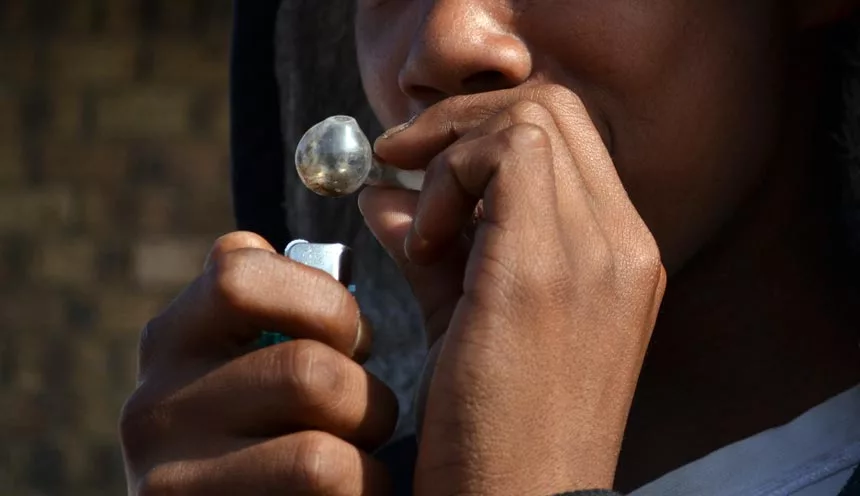Knowing the Reality of Stimulant Overdose
One of the most debated topics among those who abuse methamphetamine and other stimulants is whether or not it’s possible to overdose on these substances. Many users make the case that an overdose isn’t possible because there’s not a marked amount that signifies an official toxicity level. You may also be wondering: can you overdose on meth?
However, recent statistics seem to tell a different story. According to data from the CDC, in places like Los Angeles County, methamphetamine overdose accounted for 52% of all overdose events in 2020. And these numbers are from a record year of fentanyl-related overdose deaths – demonstrating how high the numbers truly are.
Even still, after compiling data and presenting clear evidence regarding the dangers of meth overdose, many users still question the possibility of the dangers of methamphetamine abuse.
We’ll go over common meth overdose symptoms and potential methods of assistance for those suffering from drug abuse issues.
Keep reading to learn about the events surrounding meth overdose and the effective methods of treatment for crystal meth drug use found at Catalina!
Get Accredited Meth Addiction Treatment at Catalina
America’s Overdose Epidemic: By the Numbers
Despite many efforts to provide access to care for those with opioid use disorder and overdose prevention programs, the overdose pandemic in the United States continues to worsen. There were a record-breaking 100,306 overdose deaths reported between April 2020 and March 2021.
The growing prevalence of fentanyl in the opioid drug supply and its addition to psychostimulants and marked increases in psychostimulant usage appear to heighten the risk of overdose. Deaths from drug overdoses containing psychostimulants like methamphetamine have climbed 10-fold from 2009, when the rate was 0.5 per 100,000, to 2019, when it is 5.0 per 100,000.
When mixed with opioids, both cocaine and methamphetamine enhance the risk of overdose, although methamphetamine alone is linked to a higher risk of overdose independent of opioid use. There have also been arguments that with the increase in methamphetamine use comes increased meth overdose.
However, these numbers don’t add up – despite the increase in substance abuse cases and those seeking addiction treatment, the spike in meth overdose deaths is completely disproportionate to the rising cases of meth addiction in general.
This leaves only a handful of potential driving forces behind the increased number of meth overdose cases. Are the increased numbers associated with meth overdose because of a drastic increase in the potency of the drug? Many of those close to the substance abuse and meth addiction community have speculated that the drug is not the same as it once was – citing faster rates of decline among new users.
The data gives credibility to this theory, as nearly any statistic or study you refer to points to a significantly higher potency of methamphetamine crossing our borders.
America’s History of Meth Use

Since the 1970s, methamphetamine abuse has been a widespread problem in the western United States, especially in rural regions. Methamphetamine usage has been linked to homelessness, poor income, and rural living, but recent statistics show that it has moved to other parts of the United States.
Methamphetamine-related hospitalizations skyrocketed by 270 percent between 2007 and 2015, and their associated costs, length of stay, and fatality rates all rose dramatically as well. When methamphetamine and opioids are used together, the risks of developing serious mental illness, injectable drug use, and hepatitis C virus infection all rise.
Overdose deaths from methamphetamine were found to involve opioids in 64.7% of instances, according to one study. People in rural areas may be especially vulnerable to the negative effects of methamphetamine use because they have less access to treatment for opioid use disorder and fewer options for mental health care.
Meth Use in Rural Areas of Arizona
The features of methamphetamine use in rural communities and the interaction between methamphetamine and opioid use in the context of a national overdose crisis are barely understood despite the hazards associated with this combination.
Drug users in rural locations have less access to programs that treat addiction and prevent further drug abuse than their urban counterparts. Methamphetamine use is a serious problem in rural areas and overdose prevention strategies might benefit from a deeper knowledge of the dynamics surrounding this drug.
Although there are no official markers similar to an opioid overdose, symptoms of a meth overdose or acute toxicity still exist. What happens when someone experiences a meth overdose? What are the signs and symptoms one should look for in the presence of someone suffering from substance abuse who has meth as their drug of choice?
The Dangers of Methamphetamine Addiction
Meth overdose is the most serious risk connected with crystal meth use, but there are many more, including aggressiveness, memory loss, and mood disorders.
Meth overdose happens when someone takes meth and suffers life-threatening consequences when it reacts with the brain and body, intended or not. When someone takes a dose that is too high for them, they may have this side effect. Overdosing is surprisingly common, especially considering the rate at which users combine more than one drug during active substance abuse.
Can You Overdose on Meth Risks Increase in Desert Climates

Hyperthermia is a dangerous result of amphetamine usage. Hyperthermia, the opposite of hypothermia, occurs when the body’s temperature rises above normal due to the introduction of an external stimulus, such as stimulant medicines.
Environmental conditions are usually to blame for this occurrence, which can progress to a fatal heat stroke. Heat stroke can develop regardless of the presence or absence of drug usage. Overheating causes essential organs to shut down. The result of this is certain death if left untreated.
Using meth also comes with other acute dangers. It causes a dramatic rise in blood pressure, which is linked to various health problems. Liver failure is another potential outcome. Knowing the symptoms of a meth overdose might be the difference between life and death because both of these serious outcomes result from long or short-term substance abuse.
24 Hour Meth Treatment Helpline – Call Now!
Signs and Symptoms Present in Meth Overdose
Meth overdose is the most serious risk connected with crystal meth use, but there are many more, including aggressiveness, memory loss, and mood disorders.
Meth overdose happens when someone takes meth and suffers its harmful consequences when it reacts with the brain and body, whether the user intended to or not. When someone takes a dose that is too high for them, they may have this side effect. Overdosing is common, given that this is such a potent stimulant.
Hyperthermia and Hypothermia When Using Meth
Hyperthermia is a dangerous result of amphetamine usage. Hyperthermia, the opposite of hypothermia, occurs when the body’s temperature rises above normal due to the introduction of an external stimulus, such as stimulant medicines.
Environmental conditions are usually to blame for this disease, which can progress to a fatal heat stroke. Heat stroke can develop regardless of the presence or absence of drug usage. Overheating causes essential organs to shut down. The result of this is death.
Risks of overdose increase for those using meth intravenously, due to the uncertainty of dosing and its immediate onset.
The Lesser Known Side Effects of Meth Use

Using meth also comes with other acute dangers. It causes high blood pressure, which is linked to various health problems. Liver failure is another potential outcome. Knowing the symptoms of an overdose might be the difference between life and death because both of these serious outcomes can happen rapidly.
Overdose is a very real possibility for everyone who consumes meth. There are no rules for its preparation because of the various methods of preparation. Meth is frequently produced in sloppy, unsanitary “laboratories.” There are also potentially lethal ingredients, including antifreeze, iodine, battery acid, and cat litter, in the formula.
Since meth is often produced in clandestine labs, there is no way for a consumer to know whether or not a certain batch contains which ingredients – often making the potency difficult to gauge.
Knowing the symptoms of meth addiction can help save the life of someone you care about who is battling with the drug. Some of the warning signs include the following:
Heart Issues or Heart Attacks Due to Stimulant Use
Meth toxicity symptoms frequently involve the heart and include chest aches, arrhythmias (irregular heartbeat), hypertension (high blood pressure), and a fast or sluggish heartbeat. Hypertension caused by an overdose can rapidly lead to serious complications, including stroke, heart attack, or bleeding.
Heart problems may rapidly become serious, so it’s crucial to know how to recognize them.
Stomach Pain and Digestive Issues with Meth

Meth overdose depends on the amount a user does in a short time. Because using high amounts of this illicit substance already causes stomach pain, additional symptoms include severe abdominal discomfort, nausea, diarrhea, and vomiting.
Keeping the individual at your side while you call for medical help is crucial if they start to lose consciousness. The overdose sufferer may suffocate on their vomit if they are lying on their back. Kidney failure is also possible due to the toxicity of this illicit drug.
Respiratory Effects of Meth
Pay attention to the person’s breathing if you suspect a meth overdose is occurring. Hyperventilation (rapid breathing) and other respiratory difficulties are frequent side effects of using this drug. Since the respiratory system oxygenates the blood, it has a strong relationship with the cardiovascular system. Breathing difficulties may be the first indicator of a more serious health problem.
Can Meth Cause Seizures?
Meth overdose frequently results in convulsions. Loss of motor control and shaking are two symptoms of a seizure. Not treated can cause cardiac arrest, loss of consciousness, and possibly coma.
Meth Induced Psychosis or Psychotic Symptoms
The consequences of a meth overdose might include severe psychosis and paranoia. Extreme bewilderment, such as the user not understanding where they are, is possible. They could say that they feel like they have bugs in their body or that their skin is crawling. Visible signs of restlessness and auditory and visual hallucinations are possible indicators of meth overdose.
Fear paralysis chronic anxiety, severe sleep disturbances, altered mental status, and other health risks are extremely high during a chronic overdose of too much meth. However, these health consequences can also happen as long-term symptoms. Mental Health Services Administration has reported extremely high numbers of clients positive for meth in drug testing who are admitted for meth-induced psychosis and other similar disorders.
These cases often require the assistance of a professional treatment provider for more long-term therapy.
In addition to these more obvious signs of overdose, pay attention to the user’s behavior and emotional state. An overdose of meth might sometimes manifest as extreme hostility or agitation, or outright psychotic reactions.
How Much Meth Does It Take to Overdose?

How much of the drug does it take to cause a chronic overdose? It’s difficult to predict when an overdose might occur, especially when users combine meth with other drugs. Obviously, someone who uses meth as a recreational drug as opposed to remedying a daily habit won’t require as much of the drug.
If you suspect someone of going through an overdose, contact help immediately, as aggressive medical treatment is required to reverse the situation.
Addiction Treatment for Recovering from Meth
Substance use disorder is a real problem in every demographic in America. A person’s approximate age has nothing to do with addiction anymore, as users of all ages are surfacing at facilities to undergo the treatment process all over the country.
Various addiction treatment methods have proven effective for administration during the treatment process, but there’s no blanket option for this dangerous illegal drug.
Don’t Be Afraid of Seeking Treatment for Meth

Because meth is a Schedule II stimulant, many people are afraid to seek professional medical attention from a clinical professional – or they don’t have health insurance. You can’t get in trouble for seeking help from a potential addiction, and the insurance issue can be solved as well. If someone you love or any of your family members you’re around frequently is suffering from a potential addiction involving meth, look out for signs like:
- Significant weight loss
- Difficulty sleeping
- Irritability
- Paranoia
Other risk factors and symptoms exist, but these seem to be the most prevalent. Remember, these individuals are under the influence of dangerous chemicals. It’s also important they receive intravenous fluids to prevent injury and further complications. It’s important they start addiction treatment as soon as possible.
Immediate Placement for Meth Detox and Treatment
Get Meth Recovery Support at Catalina Today!
At Catalina Behavioral Health, we’ve assisted numerous clients to beat their challenges with meth and avoid the risk of overdose from this deadly drug.
Contact a member of our welcoming Admissions team today to learn more about how we can help you overcome your challenges. All calls are completely confidential, so please give yourself the break you deserve and reach out now!




